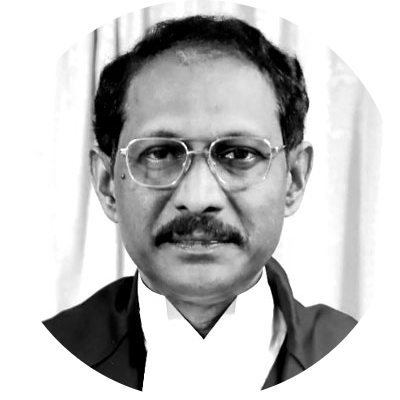Supreme Court: In a criminal appeal against a decision of the Madras High Court, wherein, the accused person’s application under Section of the for quashing the chargesheet/ final report and proceedings pending before the Special Court for (‘POCSO’) was dealt with and the High Court while acquitting him of all the charges due to lack of evidence, directed to transfer all the relevant documents to CBI for re-investigation, the Division Bench of CT Ravikumar and Sanjay Karol, JJ. held that the High Court’s decision was bad in law, and therefore quashed and set aside. Acquitting the accused of all the charges, the Bench quashed all the proceedings subsequent to such direction.
Background
A case was registered against the accused for offences under Sections and of the (‘IPC’) alleging that he kidnapped a 4-year-old child and after murdering her, threw away the dead body in a well. The Trial Court, based on the last seen theory held that the accused was guilty and sentenced him to life imprisonment and a fine of Rs. 5,000/- for the offence under Section and the death penalty for the offence under Section subject to the confirmation by the High Court. Being aggrieved by the conviction and sentence imposed upon him, the accused preferred to appeal before the High Court. The High Court set aside the Trial Court’s order and acquitted him of all the charges. The High Court further directed the transfer of all relevant documents to the Central Bureau of Investigation with the direction to conduct a de-novo investigation and submit a final report within three months.
CBI re-registered a case against the accused person for an offence under Sections and of the . The accused preferred an application under Section of the before the High Court on the ground that once the Trial Court tried him for an offence and was acquitted by the High Court, the Court could not order such an acquitted person to be tried again for the same offence on the same set of facts, after re-investigation. The High Court rejected the accused person’s application and directed the Trial Court to complete the trial and pass judgment, within 30 days.
Analysis and Decision
1. Whether the High Court was justified in directing a re-investigation and retrial of the same offence on the same set of facts, after acquitting the accused by giving him the benefit of doubt? In other words, when considering an appeal against conviction under Section of , is the High Court empowered to direct re-investigation, if yes, then could such a direction be given while acquitting the accused, in the very same order.
The Court referred to Section of which provides for ‘power of the appellate Court’ and noted that Section of enumerates the power of the Appellate Court which inter alia includes the power to order the appellant to be retried by the competent authority or committed for trial in case of appeal from a conviction.
Perusing the High Court’s judgment directing the CBI to re-investigate, the Court noted that the same was recorded after considering the relevant material and documents on record and discussed it in depth to conclude that- “this is a case where there is no evidence at all.”
On the question of power to re-investigate, the Court clarified that there is a clear difference between retrial and re-investigation. Retrial implies that the judicial process that starts after the investigation of the crime is complete shall be redone from the start, whereas the latter implies that the police and other investigating authorities are once again required to collect and examine evidence in order to present charges before a Court so that the trial can commence on such freshly collected evidence. The Court underlined that Section of unanimously speaks of retrial and not re-investigation. Section of the provides for further investigation with the permission of the magistrate, but not re-investigation. The Court stated that- “mere observation that the investigating authorities may have taken a lackadaisical ethical approach does not warrant the accused being put through the wringer once more for the same offence.”
Hence, the Court held that the High Court’s direction under Section , transferring the investigation to CBI and directing them to re-investigate the offence allegedly committed, was without the authority of law and, therefore, set aside the same.
Referring to authorities on the subject of transfer of investigation to CBI, the Court reiterated that the transfer to CBI must take place in special circumstances, or else the agency, being with limited resources shall be overburdened and rendered ineffective.
2. Whether, the de novo investigation violated the principle of double jeopardy and the right under Article of the and Section of the .
The Court noted that in T.P. Gopalakrishnan v. State of Kerala , three conditions were laid down- Firstly, there must have been previous proceedings before a Court of law or a judicial tribunal of competent jurisdiction in which the person must have been prosecuted. The said prosecution must be valid and not null and void or abortive. Secondly, the conviction or acquittal in the previous proceeding must be in force at the time of the second proceeding in relation to the same offence and same set of facts, for which he was prosecuted and punished in the first proceeding. Thirdly, the subsequent proceeding must be a fresh proceeding, where he is, for the second time, sought to be prosecuted and punished for the same offence and the same set of facts.
Testing the matter at hand on the above-mentioned conditions, the Court said that the first and the third conditions were satisfied as a previous proceeding did take place wherein the Trial Court convicted the accused and sentenced him to death and the acquittal awarded by the High Court has to remain in force for the cardinal principle of criminal jurisprudence of innocent until proven guilty applies and cannot be displaced in except in circumstances otherwise provided by law. Regarding the third condition, the Court said that had the order been for retrial, the Bench could have held that the condition remained unmet; however, since the direction was for re-investigation and that too by a different investigation agency, it necessarily has to begin from zero. Hence, the second investigation, chargesheet and examination of witnesses satisfied the third condition.
Therefore, the Court laid down that the right enshrined under Article 20(2) was violated.
CASE DETAILS
| Citation: SLP(Crl.) No. 8700 of 2023 Appellants : P. Manikandan Respondents : CBI | Advocates who appeared in this case For Petitioner(s): For Respondent(s): |
CORAM :

CT Ravikumar, J.

Sanjay Karol, J.
Buy Code of Criminal Procedure, 1973
Buy Penal Code, 1860
Buy Protection of Children from Sexual Offences Act, 2012
Buy Constitution of India
The post appeared first on .
